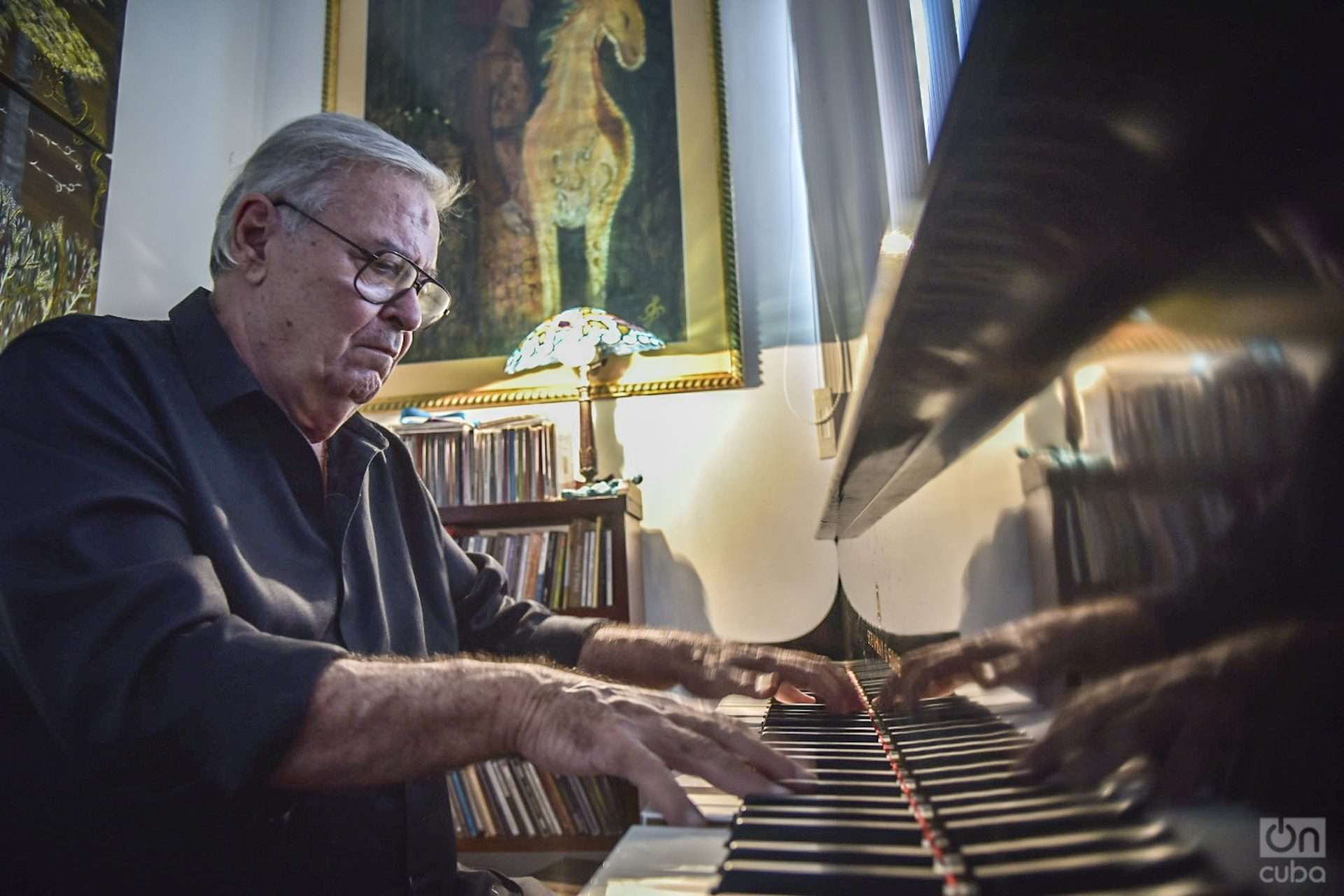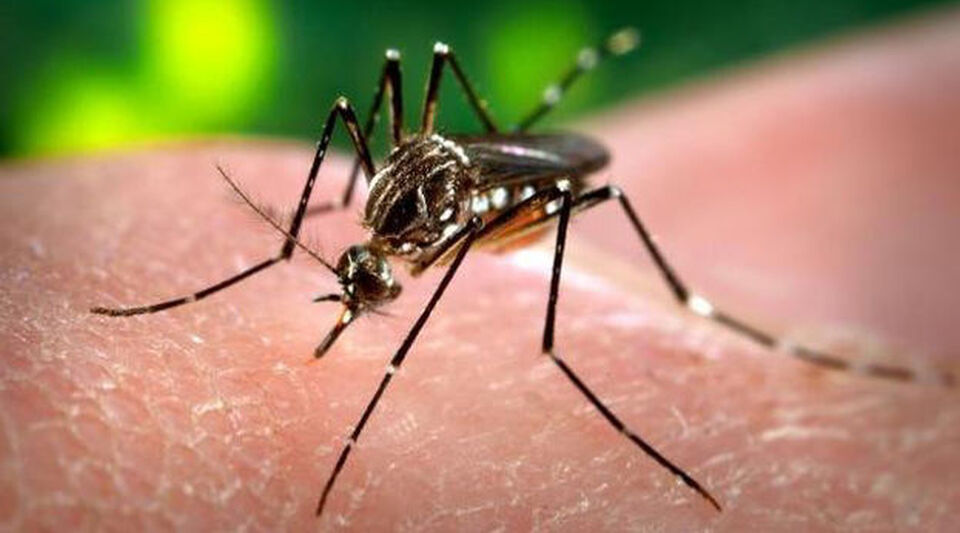His known ancestors were born and died in Cuba and that fills him with pride. Likewise, he hopes that over time his descendants will say that Vitier is a Cuban surname, beyond the probable French origin attributed to it.
The maestro José María Vitier García-Marruz (1954), like his illustrious family, is constantly in search of beauty and this is demonstrated by his compositions, soundtracks, poems… José María Vitier is the National Music Award (2021) and is already It is time for the most important film award in Cuba to reach your hands.
A few days ago we talked about his relationship with Pablo Milanes and about his link with the Cuban Nueva Trova Movement, cinema and literature.
Maestro, at what point did you begin to relate to the troubadours who formed the Nueva Trova Cubana Movement?
At the end of the ’60s, my brother Sergio came to our house with a very young and carefree troubadour named Silvio Rodríguez. I have a clear memory of hearing it there for the first time, inaugurating an amazement that has lasted a lifetime. Also through my brother’s path and long before he was a legend, I met Pablo and heard his first songs (those dazzling boleros), when the trova was barely sung at friends’ portals and evening parties.
At that time I was a piano student at the “Amadeo Roldán” Conservatory, but I remember that from those meetings an urgent need to learn to play the guitar arose in me, to make those new songs a little my own…
Since then my contact with the troubadours has been permanent, both emotionally and through numerous collaborations. To Silvio and Pablito, linked to us in an endearing way, we must add the closeness of Amaury Pérez Vidal, Pedro Luis Ferrer, Sara González, Vicente Feliú, Liuba María Hevia… They are figures who have honored me with their friendship and to whom I owe both my personal life and my own musical career. And, on many occasions, putting my songs in their voices, they have made me feel a bit like a troubadour.
To these experiences was added another, decisive in my life, when in 1971, on my first visit to Santiago de Cuba, I discovered in successive and unforgettable sessions the refined art of the old troubadours. In the Casa de la Trova on Heredia street, I was still able to enjoy the fullness of the purest trova.
There I met Emiliano Blez, Pucho el Pollero, Ángel Almanares, Manolo and Augusto Castillo, Ramón Márquez, Jústiz, Portela, Lisabet, and Maduro. indelible memories. There I made the decision to be a composer. It was a revelation. And also an immense luck to attend at that moment of my youth at the confluence of a world that seemed to be going extinct and another that gave it continuity. That duality influenced everything I tried in music, and I’m still trying.
Throughout my life I was and am emotionally linked to the trova, in its broadest sense. The record I made with Pablo Hidden flower of the old trova, with me at the piano and Pablo singing primo and segundo, sums up in a way that devotion and that need for continuity. For me, that was a debt that needed to be paid off and a devotion that has continued to inspire all of my music.
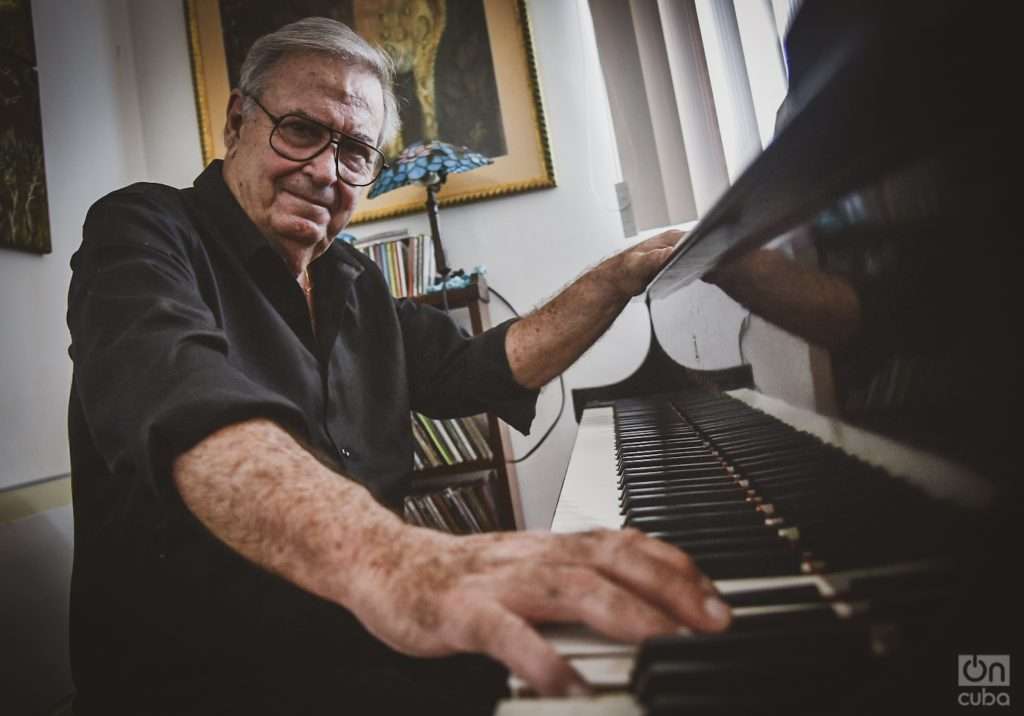
How did your friendship with Pablo Milanés begin?
For years, though my admiration for his voice and songs grew, I didn’t even dream that we could work together one day. Or maybe he did dream it, but that took time to come true.
My first professional experience with Pablito was playing the piano on the recording of one of his songs in the Prado studio. Surely it was a “substitution”, because at that time —it was the seventies— Emiliano Salvador was the essential and unbeatable pianist of all the recordings of the Cuban Institute of Cinematographic Art and Industry (ICAIC). I think it was a version of “Man You Are Growing Up”, but my recollection is not very reliable.
However, what I do remember is that at some break in that session I began to feel around for a song that was spinning in my head and Pablo stopped to listen to me, with interest. Some ten years later, Pablo would premiere it live with my own group at the Cinemateca de Cuba, in an unforgettable concert. the song was your clear eyes and marked the way for new collaborations and the takeoff of our genuine friendship.
Already in 1980, Pablo recorded for the first time a song of mine, “To start living”, for the eponymous television series. In 1986, she composed a song for the series The fontera of dutyexpressly to be sung by Pablo and Silvio, as indeed happened. I will be faithfulI think, was one of the last things they sang together, (and very beautifully, by the way), which inevitably adds a touch of nostalgia to that recording.
My first trip to Spain in 1994 was at the invitation of Pablito, to present four of my songs in a concert at the Teatro Monumental in Madrid. A true litmus test was appearing on that stage, as an absolute stranger, together with Pablo singing my songs and before an audience impatient to hear only his. But, once again, when he released the voice of him to fly, we all flew.
His next gesture was to produce from his PM Foundation a record with my songs for children (if i were born again, PM Records, 1995). In fact, it was my first CD and the songs were sung by Pablo and María Felicia Pérez, solo and in duo. A moving rendition and one of my most beloved records.
As our friendship grew, and greatly influenced by it, I started writing more songs. The possibility of having a friend and interpreter of that category was undoubtedly a powerful stimulus. In such a way that the path was paved for greater endeavors.
Precisely that major commitment was the recording (and filming) of a concert-production dedicated to my songs, performed by Pablo, with me at the piano. The album and live video of this work, autumn songrepresented the realization of the original dream of hearing my songs in the voice that had always inspired them.
Among the poetic texts on the album, Pablo also sang several of my own and two of my wife Silvia Rodríguez Rivero: “Perhaps it was yesterday” and “Solía un ángel”. The launch concert at the National Theater marked an unforgettable milestone in our lives, long awaited.
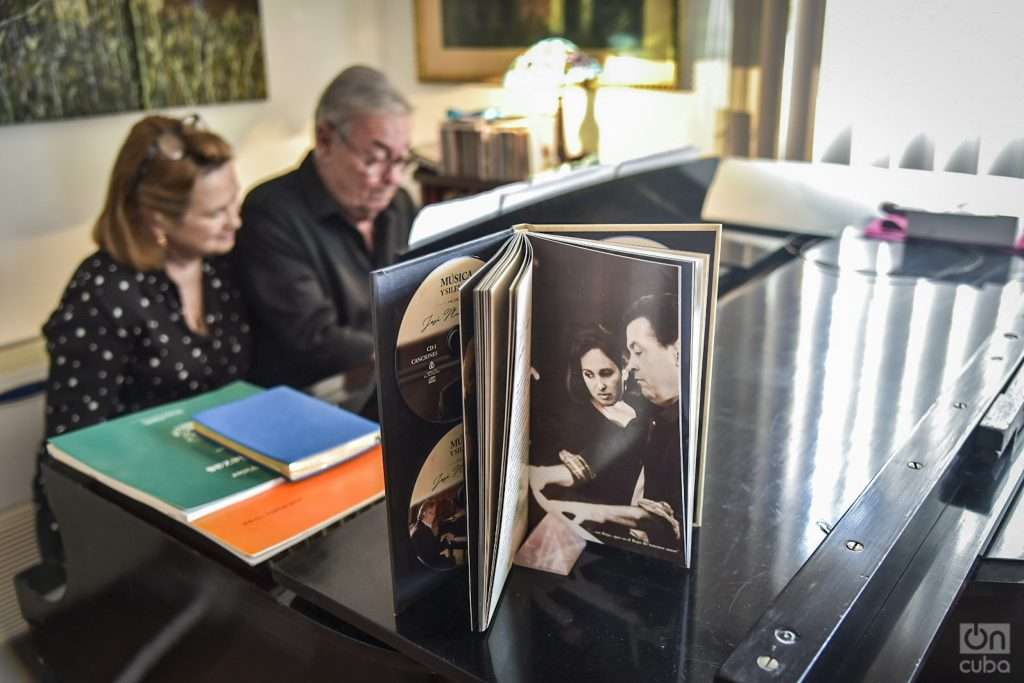
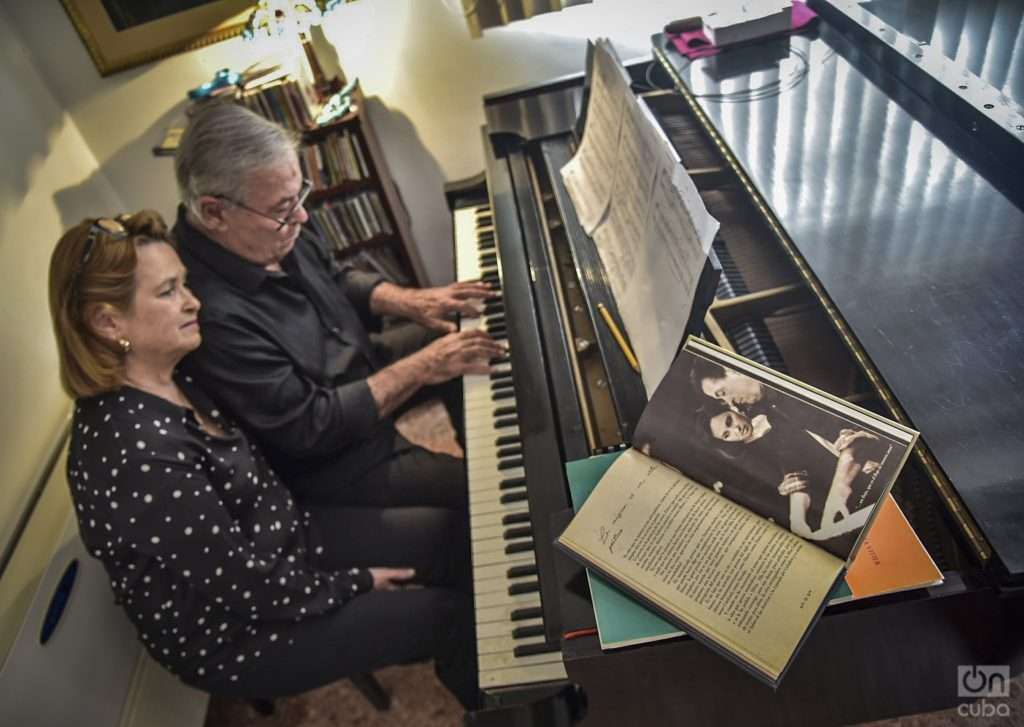
Undoubtedly I have been a happy debtor of Pablo’s generosity as an interpreter, but above all I am a happy debtor of his friendship and that family affection with which he knew how to lavish his surroundings.
Perhaps I have gone too far. Now I remember the question in its complex simplicity: how was our friendship born? And I could have simply said that he was born in such a way that he is still being born.
These days the Havana Film Festival returns and its theme “from the village” is heard everywhere. What is the cinema that the author of so many soundtracks prefers?
With cinema, as with music or literature, I share my preferences between what I already know and like to revisit, and what is new that I discover and that stimulates me as an artist.
Among the first are the classics: (Bergman, Kurosawa, Tarkovski, Tornatore, Glauber, Chaplin, and a long etcetera) and then there is the cinema that I am discovering, especially the one that comes from independent cinematographies of the mainstream hollywood. I am also very interested in the cinema of my country, or to be more exact: the cinema made by Cuban artists.
As for themes, I find it easier to mention those that bore me to death, such as science fiction, catastrophism, superpowers, those with underwater plots, or use “actors” from the animal kingdom, and heroic fantasies, almost without exception. .
Lately I really enjoy some foreign series for television (of the type of breaking bad either Better call Saul) where I perceive that significant changes are taking place in narrative techniques that will surely influence what future cinema will be —or has already begun to be.
Those of us who follow him on social networks enjoy his varied texts. Have you already thought about publishing a book with all these materials?
I started writing, in a sustained way, a little over 12 years ago, out of an intimate expressive need, which has never had editorial pretensions. I have accumulated a great deal of material, both in verse and prose, and I am certainly not short of proposals for publication.
However, until now I have not decided to “put together a collection of poems” or a book of stories. Literature was, in my case, a fascination as early as music itself, but I have always preferred to see it as an extension of my musical work, and not as a trade.
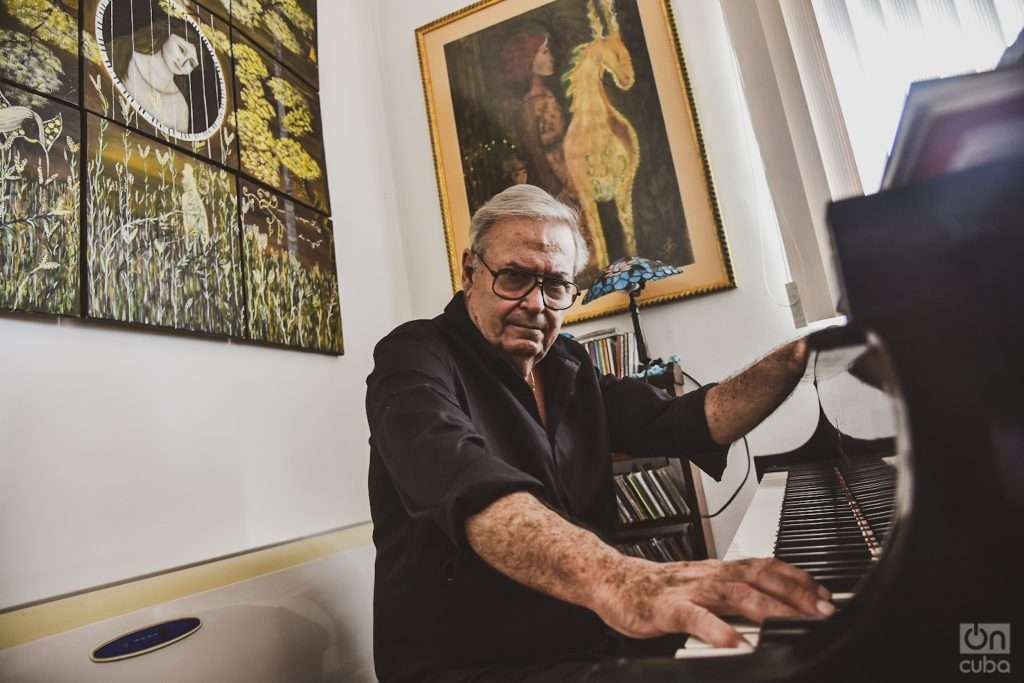
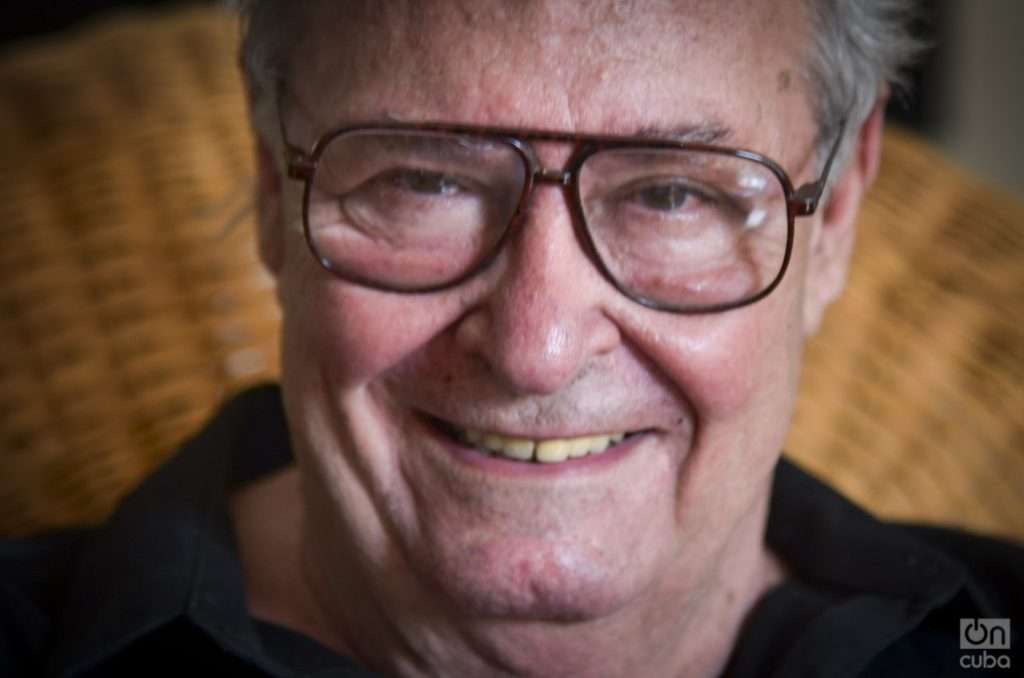
In addition, the experience of sharing my writings on the networks gives me the opportunity to constantly review and rewrite them, which is better suited to my sense of self-criticism and keeps my texts in a state of permanent search. Until now, that has been enough for me and I plan to continue like this, “until further notice”.
